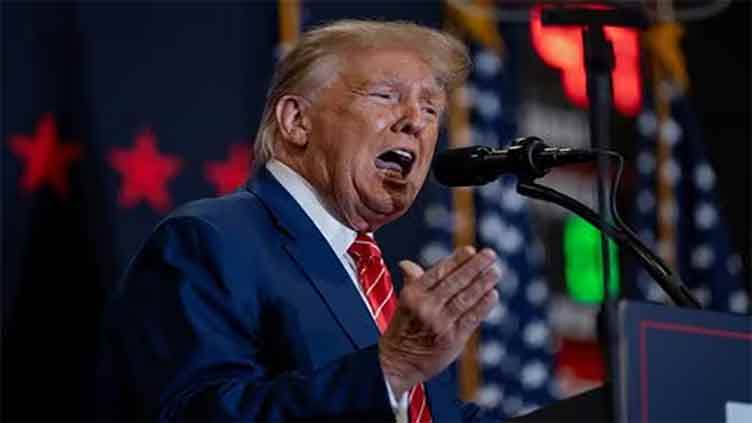Trump favored to win Iowa caucus as 2024 presidential election kicks off

World
Trump favored to win Iowa caucus as 2024 presidential election kicks off
DES MOINES, Iowa (Reuters) - Donald Trump is the overwhelming favorite to push past his rivals and stake an early claim to the Republican presidential nomination when Iowans brave bone-chilling temperatures on Monday to cast the first votes in the 2024 campaign.
The former president's dominant position has turned Iowa's first-in-the-nation contest into a race for second place, as both Florida Governor Ron DeSantis and former U.N. Ambassador Nikki Haley are aiming for a clear runner-up finish to emerge as the chief alternative to Trump.
A commanding victory for Trump in Iowa would bolster his argument that he is the only candidate in the Republican field capable of taking on Democratic President Joe Biden in the November election. It would also spell trouble for his challengers, especially DeSantis, who has wagered his campaign's viability on Monday's Iowa caucus, pouring resources into the Midwestern state and barnstorming all of its 99 counties.
A survey released on Saturday from an influential Iowa pollster showed DeSantis had slipped behind Haley, garnering 16% of the state's Republican voters to her 20%, with Trump far ahead at 48%.
A strong second-place showing for either Haley or DeSantis would keep alive the notion that Trump's march toward the nomination is not a foregone conclusion.
For DeSantis, a third-place finish could prove fatal to his prospects as the campaign shifts to the more moderate state of New Hampshire, where Republicans will choose their nominee eight days after Iowa. Polls there show Haley cutting into Trump's lead, while the Florida governor remains far behind.
Both DeSantis and Haley expressed confidence that they would exceed expectations on Monday, though they were careful not to predict victory.
"I have a record of doing well as the underdog ... we're gonna do well," DeSantis told Fox News on Sunday.
"The only numbers that matter are the ones that we're going up and everybody else went down," Haley told the network. "And that shows that we're doing the right thing."
The life-threatening cold blanketing the Midwest, which already forced the campaigns to cancel several events over the weekend, could dampen turnout on Monday. Unlike a regular election, Iowa's caucuses require voters to gather in person on Monday evening in small groups at churches, schools and community centers, where they cast secret ballots after speeches from campaign representatives.
On the campaign trail on Sunday, the candidates urged supporters to caucus despite the arctic conditions.
"Brave the weather and go out and save America," Trump said at a rally in Indianola.
The National Weather Service predicted the wind chill temperature could reach minus 45 degrees Fahrenheit (minus 43 degrees Celsius) in some parts of the state.
Trump's grip on his most loyal supporters may give him an edge if the freezing conditions convince some voters to stay home. The Iowa poll released on Saturday showed Trump had far more backers who were "extremely" or "very" enthusiastic about caucusing on Monday.
"Trump creates his own turnout," said Brad Boustead, an officer with the Republican Party in Urbandale, Iowa, who attended Trump's rally. "The Trump people aren't going to be afraid of the weather."
Iowa has historically played an outsized role in presidential campaigns due to its primacy on the campaign calendar. Candidates often spend months fanning out across the state and introducing themselves to voters, and many campaigns have ended after a poor showing.
In 2008, 2012 and 2016, however - the last three competitive races - the winner of Iowa's Republican caucuses did not go on to secure the nomination, in part because Iowa's large evangelical population means the state is more socially conservative than the country as a whole.


